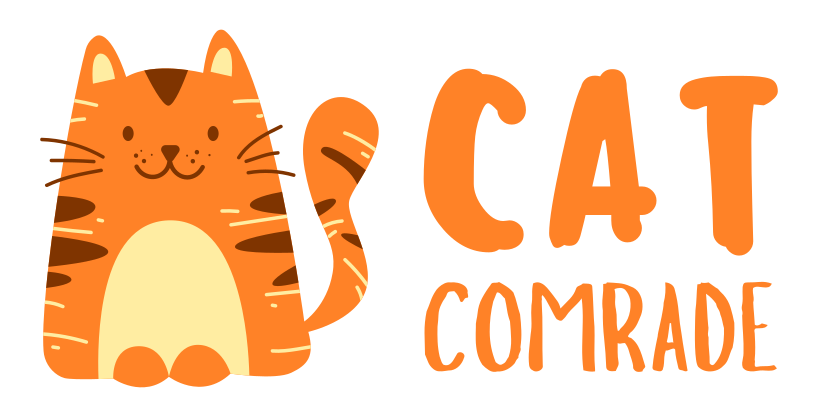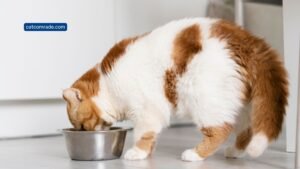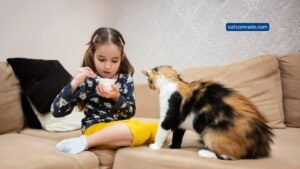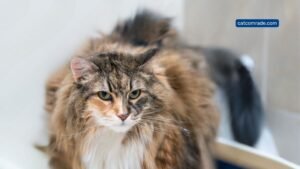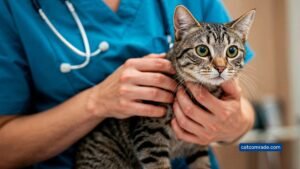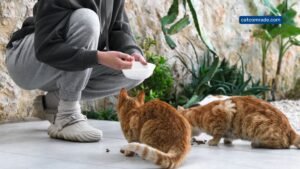What to Feed a Cat With Diarrhea: Safe & Soothing Diet Tips
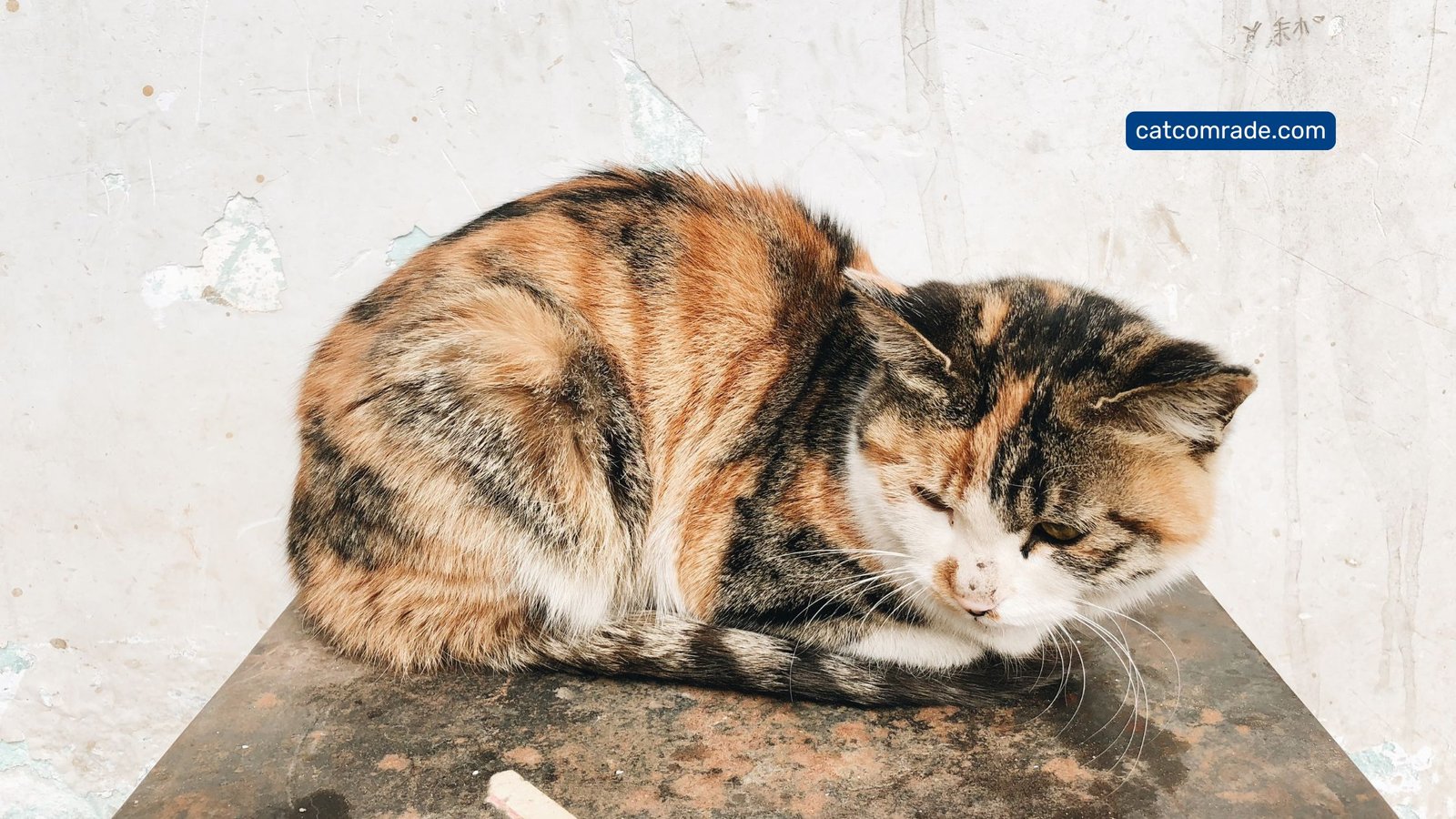
If your cat is dealing with diarrhea, you’re probably worried and wondering how to help your furry friend feel better fast. What you feed your cat right now can make a big difference in their recovery.
Choosing the right foods can soothe their upset stomach and get things back to normal sooner.
You’ll discover simple, effective feeding tips that can ease your cat’s discomfort and support their health.
Keep reading to learn exactly what to feed a cat with diarrhea and help your pet bounce back quickly.
Causes Of Cat Diarrhea
Diarrhea in cats can be worrying for any pet owner. Understanding the causes helps in giving the right care.
Several factors can upset your cat’s digestion and lead to diarrhea. Identifying these causes is the first step in managing the problem effectively.
Common Triggers
Diet changes often cause diarrhea in cats. A sudden switch to new food can upset their stomach.
Eating spoiled or bad food also leads to digestive issues. Cats are curious and may eat things they should not.
Parasites like worms or protozoa are common triggers. These parasites irritate the intestines and cause loose stools.
Stress or anxiety can change a cat’s bowel habits. Moving, loud noises, or new pets can cause stress.
Infections, both bacterial and viral, often cause diarrhea. These infections need proper treatment to clear up.
Food allergies or intolerances also affect digestion. Some cats react to certain ingredients in their food.
When To Seek Vet Help
Diarrhea lasting more than two days needs veterinary attention. Prolonged diarrhea can cause dehydration and weakness.
Look for signs like blood in stool or vomiting. These symptoms may indicate a serious problem.
If your cat is very young, old, or has other health issues, see a vet quickly. They are more vulnerable to complications.
Loss of appetite or lethargy along with diarrhea is concerning. These signs show your cat may be very ill.
Always get professional advice if you are unsure. Early treatment helps your cat recover faster.
Foods To Avoid
Choosing the right food is important for a cat with diarrhea. Some foods can make diarrhea worse or cause other problems.
Avoiding certain ingredients helps your cat heal faster. Focus on gentle, easy-to-digest options instead.
Harmful Ingredients
Avoid spicy and fatty foods. These can irritate your cat’s stomach. Onions, garlic, and chives are toxic to cats.
They damage red blood cells and cause anemia. Also, steer clear of dairy products.
Many cats cannot digest lactose well. This can increase diarrhea and discomfort.
Artificial additives like colors, flavors, and preservatives may upset your cat’s digestive system.
Processed treats and human snacks often contain these. They offer no nutritional value and can worsen symptoms.
Common Allergens
Food allergies can cause diarrhea in cats. Common allergens include beef, fish, and dairy.
Some cats react to chicken or grains like wheat and corn.
Watch for signs of allergic reactions like itching, vomiting, or loose stools.
Try feeding a novel protein or limited ingredient diet. This helps identify the allergen causing issues.
Avoid any foods that trigger symptoms to protect your cat’s gut health.
Safe Foods For Cats With Diarrhea
Choosing the right food is important for cats with diarrhea. Safe foods help calm their stomach and support recovery.
Feeding the wrong food can make diarrhea worse or cause other health problems.
Focus on gentle, easy-to-digest options that provide nutrition without upsetting the digestive system.
Bland Diet Options
Bland foods reduce stress on the cat’s stomach. Plain boiled chicken without skin works well.
White rice is gentle and helps firm up stools. Pumpkin puree can soothe the intestines and add fiber.
Avoid spices, sauces, or heavy fats. These foods offer nutrients without irritation.
Feed small portions to avoid overloading the stomach.
Hydrating Foods
Hydration is key during diarrhea. Wet cat food contains more moisture than dry kibble.
Broth made from plain chicken or beef adds fluids and flavor. Avoid onion or garlic broths, as they are toxic to cats.
Water-rich foods help prevent dehydration. Always provide fresh water alongside these foods.
Keeping your cat hydrated supports healing and comfort.
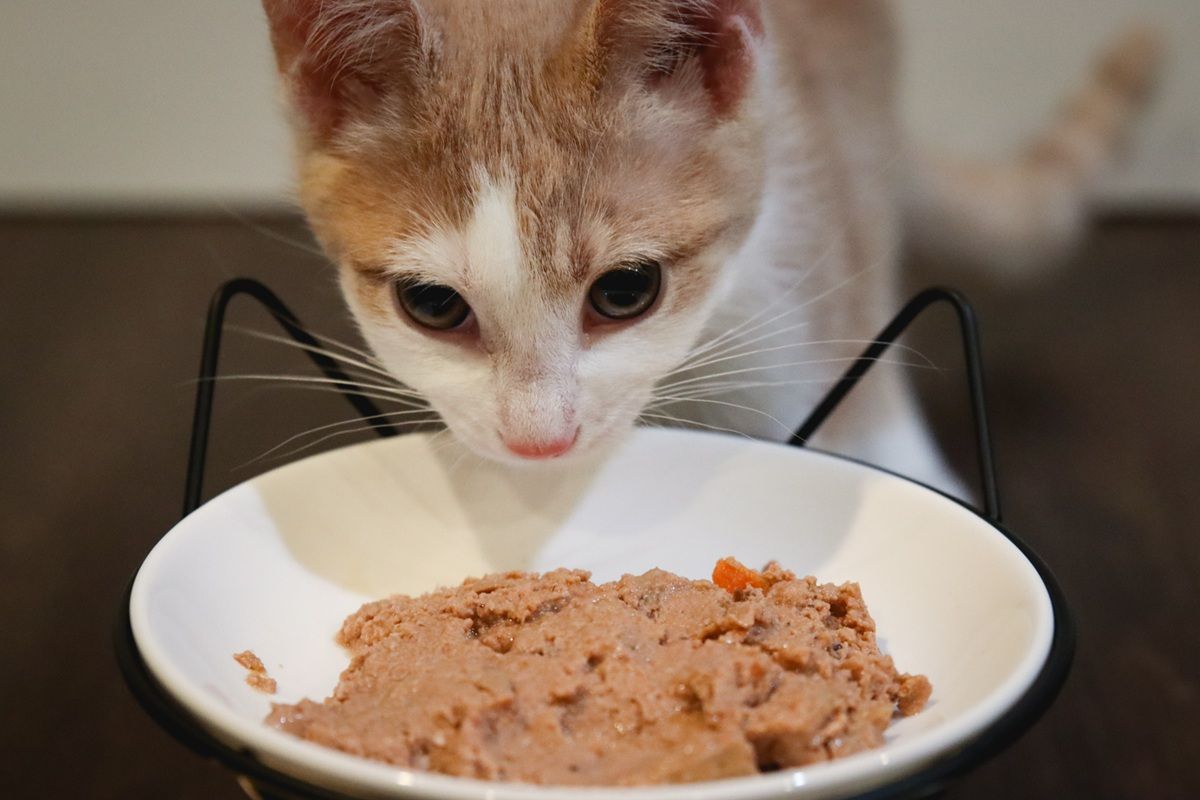
Credit: cats.com
Homemade Diet Recipes
Homemade diet recipes help soothe a cat’s upset stomach. They provide gentle nutrients and avoid harsh ingredients.
Preparing food at home lets you control what your cat eats. This can help reduce diarrhea and support recovery.
Keep meals simple and bland. Avoid spices, oils, and dairy products. Here are two easy recipes you can try.
Simple Boiled Chicken
Boiled chicken is easy to digest and gentle on the stomach. Use skinless, boneless chicken breast for best results.
Cut the chicken into small pieces. Boil in water until fully cooked. No salt or seasoning. Cool before serving.
Offer small amounts several times a day. This helps your cat get protein without upsetting the stomach.
Rice And Pumpkin Mix
Rice and pumpkin create a soothing meal for cats with diarrhea. Cook plain white rice until soft.
Use plain canned pumpkin, not pumpkin pie filling. Mix a small amount of pumpkin into the rice.
The fiber in pumpkin helps firm up stools. Serve in small portions. This mix adds gentle fiber and energy to your cat’s diet.
Commercial Diets For Sensitive Stomachs
Commercial diets for sensitive stomachs help cats recover from diarrhea. These diets contain gentle ingredients that ease digestion.
They reduce irritation and support gut health. Feeding the right food is vital for your cat’s comfort and healing.
Prescription Options
Veterinarians often recommend prescription diets for cats with diarrhea. These foods have controlled protein and fat levels.
They include easily digestible ingredients to calm the stomach. Prescription diets may contain added fiber to firm stools.
They are designed to reduce inflammation in the gut. Always follow your vet’s advice when using these diets.
Over-the-counter Choices
Many pet stores offer over-the-counter sensitive stomach diets. These foods use limited ingredients to avoid triggers.
Common options include rice, chicken, and pumpkin. They help regulate digestion and improve stool quality.
Over-the-counter diets are convenient and affordable. Check the label for “sensitive stomach” or “digestive care” claims.

Credit: doobert.com
Feeding Tips And Schedule
Feeding a cat with diarrhea needs special care. A good feeding schedule helps the cat’s stomach recover more quickly.
Small, gentle meals work best. A gradual food change helps keep the tummy calm. Follow these tips to support your cat’s recovery.
Small Frequent Meals
Give your cat small meals several times a day. This prevents the stomach from working too hard.
Smaller meals reduce the chance of more diarrhea. Try feeding 4 to 6 times daily. Keep the portion sizes light and easy to digest.
Gradual Food Transition
Change the cat’s food slowly over several days. Sudden changes can upset the stomach more.
Mix the new food with the old food. Increase the new food amount each day.
This helps the cat’s digestion adjust smoothly.
Hydration And Supplements
Keeping your cat hydrated is key when dealing with diarrhea. Fluids help replace what your cat loses and support recovery.
Supplements can also aid digestion and calm the stomach. Together, they improve your cat’s comfort and health during this tough time.
Importance Of Water
Water keeps your cat’s body working well. Diarrhea causes quick fluid loss. This can lead to dehydration, which is dangerous.
Always provide fresh, clean water. Some cats prefer running water from a fountain. Wet cat food also adds moisture to their diet.
Check water bowls often and refill them. Hydration helps flush out toxins and supports healing.
Probiotics And Fiber
Probiotics add good bacteria to the gut. They balance the digestive system and reduce diarrhea. You can find probiotic supplements made for cats.
Fiber helps slow digestion and firm stool. Sources include pumpkin or special cat foods with fiber.
Both probiotics and fiber work together. They help restore your cat’s normal digestion quickly.
Monitoring Recovery
Monitoring recovery is key when your cat has diarrhea. Careful observation helps you see if your cat is getting better.
It also shows if the diet changes are working.
Watching closely helps catch any new problems early. You can spot signs of improvement or worsening quickly.
This helps you know what to do next for your cat’s health.
Tracking Symptoms
Write down how often your cat has diarrhea. Note the color, consistency, and any smell changes.
Check if your cat is eating and drinking normally. Watch for vomiting, lethargy, or weight loss.
Track their bathroom habits and overall mood daily. Use this information to see patterns and changes.
When To Contact A Vet
Call the vet if diarrhea lasts more than two days. Seek help if your cat refuses food or water. Alert the vet if you see blood in the stool.
Contact the vet if your cat is very weak or vomiting. Sudden behavior changes or severe dehydration need urgent care.
Do not wait too long to get expert advice.
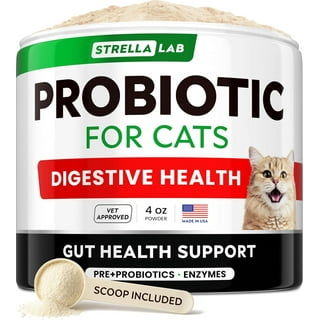
Credit: www.walmart.com
Frequently Asked Questions
What Foods Help A Cat With Diarrhea Recover?
Offer bland foods like boiled chicken, rice, or pumpkin. These are gentle on the stomach and help firm stools.
Avoid dairy, fatty, or spicy foods as they worsen diarrhea. Always provide fresh water to prevent dehydration.
Can I Feed My Cat Wet Food During Diarrhea?
Yes, wet food is easier to digest and helps keep your cat hydrated. Choose plain, low-fat options without additives or spices.
Avoid canned food with gravy or sauces that may upset the stomach further.
How Long Should I Feed A Bland Diet To My Cat?
Feed a bland diet for 2 to 3 days while monitoring symptoms. If diarrhea improves,
gradually reintroduce regular food over several days. Consult a vet if diarrhea persists beyond 3 days.
Is It Safe To Give Probiotics To Cats With Diarrhea?
Probiotics can help restore healthy gut bacteria and improve digestion.
Use vet-recommended probiotics specifically designed for cats. Avoid human probiotics unless advised by a veterinarian.
Conclusion
Feeding a cat with diarrhea requires gentle care and simple foods. Choose bland, easy-to-digest meals like boiled chicken or rice.
Keep fresh water available to prevent dehydration. Avoid sudden diet changes to help your cat’s stomach settle.
Watch your cat’s behavior and stool for any improvements.
If diarrhea lasts more than a day, seek vet advice. Good food and care can help your cat feel better soon.
Patience and attention make a big difference in recovery.
